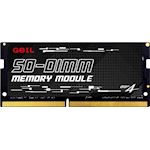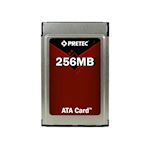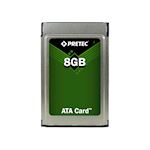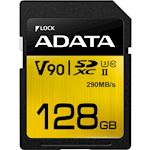SSD Series
Frequently asked questions
-
What is ECC?
ECC (Error correcting Code) is a method used to detect and correct errors introduced during storage or transmission of data.
What is the difference between Industrial CF cards and commercial CF cards?
Industrial CF
Operating temperature between -40°C to 85°C. Flash chip types; Use SLC (Single Level Cell).
Commercial CF
Operating temperature between 0°C to 70°C. Flash chip types; generally use MLC (Multi Level Cell) except for high-end models.
-
What is PIO mode?
PIO (Programmed Input/Output), is an old method transferring memory over IDE/ATA interface. The technique of a PIO involves is using the CPU, the drawback is that the CPU must mediate the transfer of data. But it's advantageous for the earlier designs machine because hardware implementation is simpler and adequate for devices that require low transfer rates.
-
What is DMA mode?
DMA (Direct Memory Access), the transfer technique does not involve the CPU. The involved components move data directly to and from RAM, bypassing the CPU. Moreover, DMA can also be divided in two types, which are Multi-word DMA and Ultra DMA. The main difference between these two models is that Ultra DMA can serve faster data transfer speeds than Multi-word.
-
Why is my Mini IDE burned and melted?
There are several possibilities:
If the power cord was inserted in the wrong direction, it will cause VCC and GND short circuit. And then Mini IDE will fail to work. There was a power surge. The specific IxNxxx-xA Mini IDE design with power supply via IDE slot on motherboard, it is no need to connect extra power supply. Please make sure, don't connect external power cord to IxNxxx-xA Mini IDE device.
-
What is the difference between ATA Flash card and Linear Flash card?
ATA Flash cards
Can be used interchangeably between any computer that supports the ATA or IDE. Computer that supports the ATA or IDE standard are independent of the host or operating system that it is used. No need for FFS (Flash File System) or FTL (Flash Translation Layer) special software drivers.
Linear Flash cards
Linear Flash cards will work only on computers that have the same FFS System (Flash Filing System) Interoperability is limited. Requires FFS (Flash File System) or FTL (Flash Translation Layer) software drivers for performance and compatibility and different versions of FFS or FTL drivers are not always compatible with different systems.
TeqFind's Choice:
-
 16GB GEIL SO-DIMM2133MHz CL15 DDR4€ 36.00 excl. VAT
16GB GEIL SO-DIMM2133MHz CL15 DDR4€ 36.00 excl. VAT
€ 43.56 incl. VAT -
 256MB Pretec Lynx ATA Flash Card, Metal housing, -40 - 85°C€ 40.85 excl. VAT
256MB Pretec Lynx ATA Flash Card, Metal housing, -40 - 85°C€ 40.85 excl. VAT
€ 49.43 incl. VAT -
 8GB Tiger Solution (metal housing)€ 144.96 excl. VAT
8GB Tiger Solution (metal housing)€ 144.96 excl. VAT
€ 175.40 incl. VAT -
 Adata Premier ONE V90 128GB€ 92.44 excl. VAT
Adata Premier ONE V90 128GB€ 92.44 excl. VAT
€ 111.85 incl. VAT
